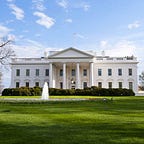When Professor Obama Spoke to Our Law School
By Luke Sperduto, The University of Chicago Law School
On Thursday, April 7th, President Obama returned to The University of Chicago Law School, where he taught constitutional law for over a decade, for a discussion on the Supreme Court with Professor David Strauss.
I was sitting towards the front of a law student audience that had waited hours for the President’s arrival, notebook and pen in hand.
Throughout the lengthy discussion with Professor Strauss, the varied voices of President Obama spoke in turns. After Obama the President made his case for Merrick Garland’s credentials as a jurist, Obama the Professor acknowledged that while politics has always played a role in judicial decision-making, the judiciary has now fallen victim to broader trends towards partisan gridlock. Catalyzed by the blocked Bork nomination in 1987, these trends are exacerbated, President Obama noted, by both the perceived political imperative of “placating the base” and The Big Sort phenomenon expounded by Bill Bishop.
At ease among his former colleagues, the Professor of Constitutional Law elaborated on the separation of federal powers that makes courts an excellent shield, but not a great sword, for advancing the cause of justice.
The Supreme Court, he said, should not be engaged in designing or orchestrating a more progressive society; it should concern itself with ruling so as to operationalize substantive equal protection and due process of law.
Asked about the vision that guides his judicial nominations, the President praised judges who follow the law even when they disagree with it. He lauded those who demonstrate their humanity through lived experience with the realities of American capitalism. Highlighting the unprecedented and multidimensional diversity of his appointments to the federal judiciary, he clarified that diversity is not a matter of slotting particular minorities into particular positions. Rather, for Obama, diversity is that distribution of demographics across offices that best marshals Americans’ diverse skills and talents for the benefit of all.
“I want someone who is wise,” he said, “who is not arbitrary, and who inspires confidence in the judicial system.”
It was clear that the President himself had returned to Hyde Park on a mission to inspire confidence — confidence in the government, confidence in the American citizenry, and confidence in us. The Head of the Executive Branch advertised that he was there to recruit. The Community Organizer reminded everyone that “the most important office in a democracy is the office of citizen.”
Democracy can be frustrating, the President acknowledged, and our actions will always have consequences beyond our control. Yet, uncontrollable consequences notwithstanding, when I think about what this polyvocal leader said to my classmates and me on April 7th, it won’t be constitutional law or judicial nominations that come first to mind. It will be his initial exhortation: in the face of frustration, stay engaged and stay involved.
Luke Sperduto is a first-year student at The University of Chicago Law School.
Learn more about President Obama’s Supreme Court nominee at wh.gov/SCOTUS.
